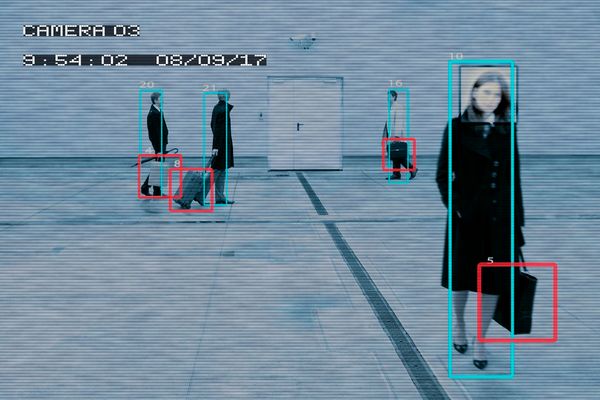Driver"s License Photo Database Used by FBI, ICE for Facial Recognition

FBI and ICE agents use the DMV photo database for facial recognition scanning without residents” knowledge or consent, according to public documents spanning five years obtained by Georgetown Law researchers and shared with The Washington Post. This type of mass surveillance is “a routine investigative tool,” the paper writes.
Federal agents add this to their current database of fingerprints and DNA data collected from suspects in criminal investigations yet, in this case, most people have no criminal history whatsoever. In some US states, such as Utah, Vermont and Washington, undocumented immigrants are allowed to have driver”s licenses or permits, which has made it easier for ICE agents to run searches and deport people.
“The state has told [undocumented immigrants], has encouraged them, to submit that information. To me, it”s an insane breach of trust to then turn around and allow ICE access to that,” said Clare Garvie, senior associate with Georgetown Law”s Center on Privacy and Technology.
On average, the FBI runs 4,000 monthly searches that claims to be 86 percent accurate. Although the use of facial recognition has been banned in San Francisco and in Somerville, Mass, it”s approved in 21 states with flexible requirements, including Pennsylvania, Texas and the District of Columbia.
Both Democratic and Republican legislators are speaking against the use of facial recognition for mass surveillance, arguing that it is “error-prone” and carried out covertly.
“They”ve just given access to that to the FBI,” Rep. Jim Jordan (Ohio), the House Oversight Committee”s ranking Republican said. “No individual signed off on that when they renewed their driver”s license, got their driver”s licenses. They didn”t sign any waiver saying, “Oh, it”s okay to turn my information, my photo, over to the FBI.” No elected officials voted for that to happen.”
ICE refused to comment, only saying its “investigative techniques are generally considered law-enforcement sensitive.”
Last month, Deputy Assistant Director Kimberly Del Greco said the use of facial recognition in investigations is vital “to preserve our nation”s freedoms, ensure our liberties are protected, and preserve our security.”
tags
Author
After having addressed topics such as NFC, startups, and tech innovation, she has now shifted focus to internet security, with a keen interest in smart homes and IoT threats.
View all postsRight now Top posts
How to Protect Your WhatsApp from Hackers and Scammers – 8 Key Settings and Best Practices
April 03, 2025
Outpacing Cyberthreats: Bitdefender Together with Scuderia Ferrari HP in 2025
March 12, 2025
Streamjacking Scams On YouTube Leverage CS2 Pro Player Championships to Defraud Gamers
February 20, 2025
How to Identify and Protect Yourself from Gaming Laptop Scams
February 11, 2025
FOLLOW US ON SOCIAL MEDIA
You might also like
Bookmarks








